iFLIPP Leadership Training held in Slovenia
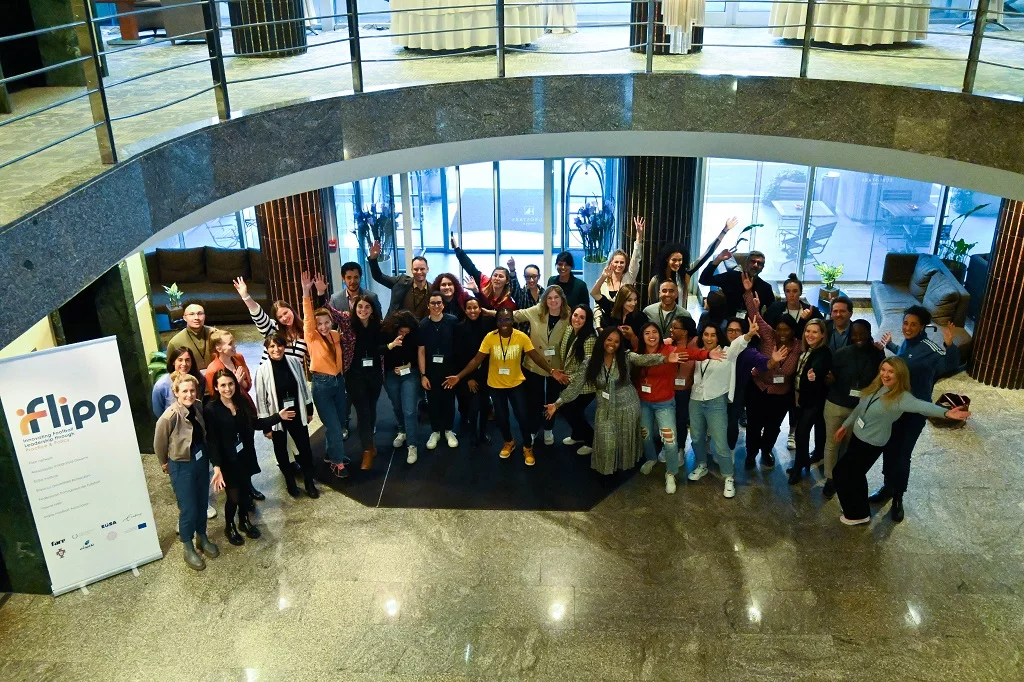
The Erasmus+ project Innovating Football Leadership through Practice and Policy (iFLIPP) convened in Ljubljana, Slovenia, from March 8-11, 2023, for a European Leadership Training Programme co-hosted by the European University Sports Association (EUSA) and the EUSA Institute.
The Training Programme, which took place at the Eurostars uHotel in Ljubljana, Slovenia, gathered 40 participants, professionals, and leaders in the world of football and sports in general, specifically for women and ethnic minorities, to attend this project, with the main goal of providing the participants with the opportunity to learn more about leadership, network building, developing strategy, joining boards, and building personal brands.
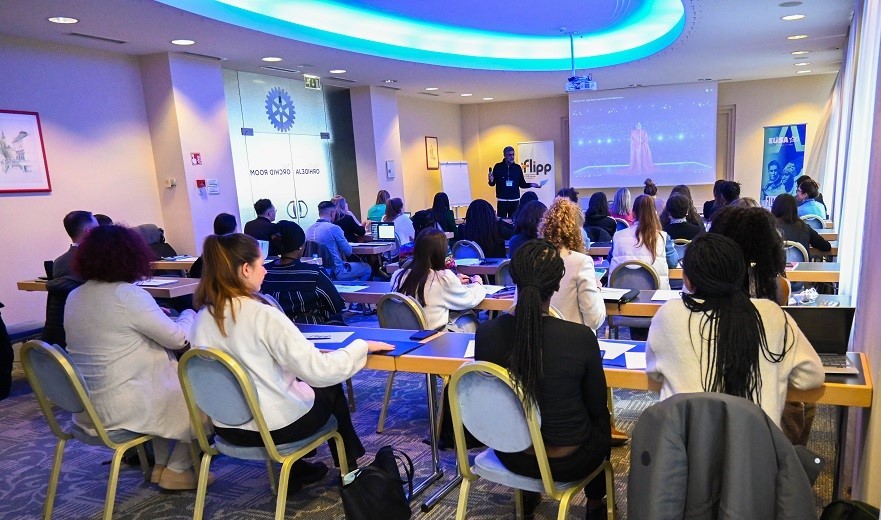
On March 8th, the first day of the training programme began with an afternoon of introductions to what the next couple of days would include, followed up with an ice-breaker to allow the team to get to know each other better. The participants were then given the opportunity to create groups and begin group work sessions on the topic of either diversity planning or generating development plans, which they would have to submit on the final day of the training programme.
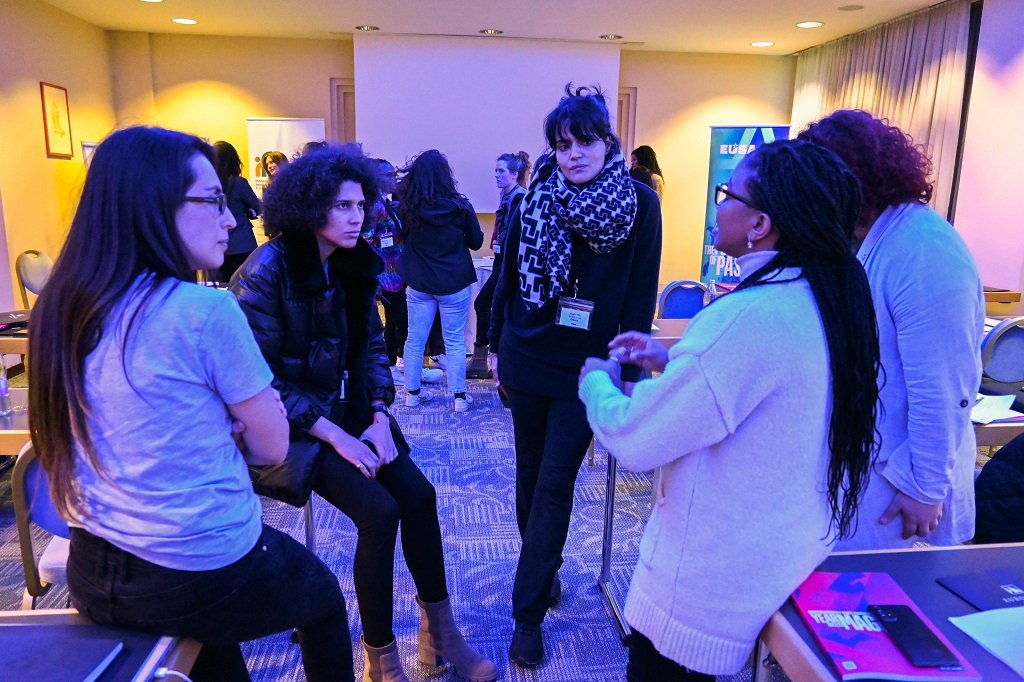
The participants also had a chance to hear details of the personal journey of Ms Ayisat Yusuf-Aromire, from the football court in her home in Nigeria, to the sucessful fight for women's football in Finland.
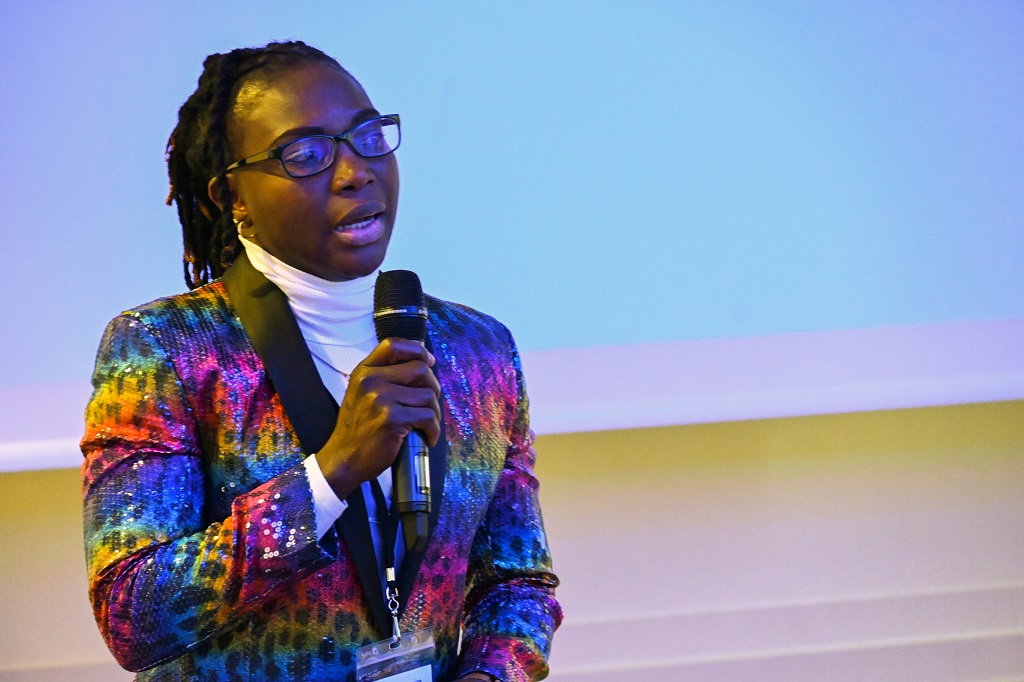
On the second day of training, the first speaker, Ms Reyes Believer, a founder, and attorney-at-law at Believer Sports in Madrid, spoke about the significance of gender equality in football, the female involvement in football and what difficulties, dynamics, and institutional arrangements impede women from succeeding.
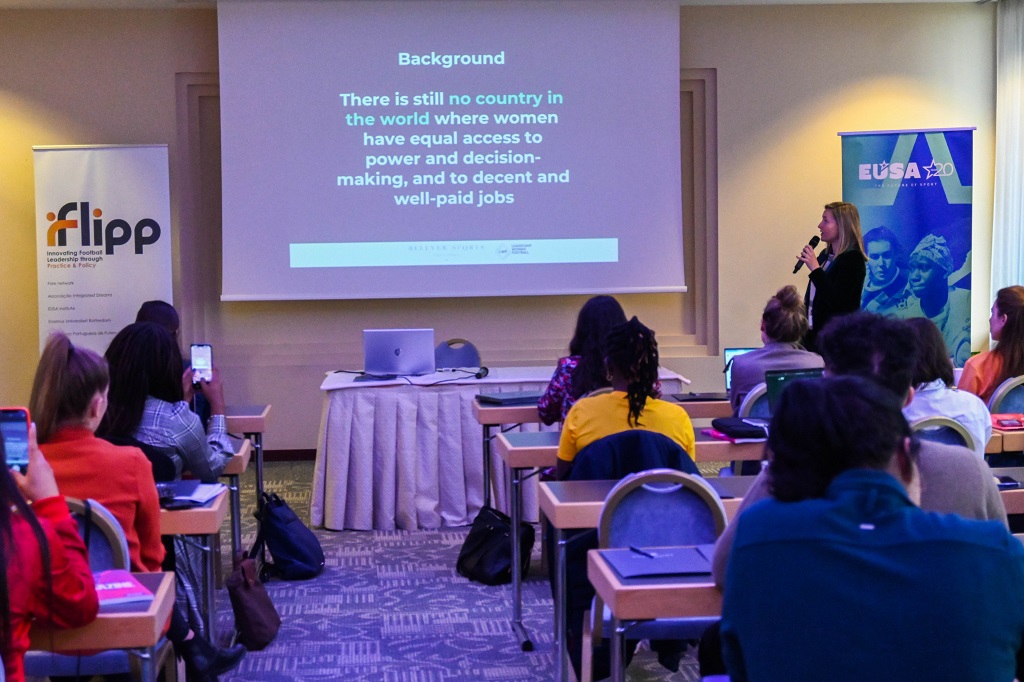
This was followed then by the General Secretary of the Slovenian FA, Mr Martin Kozelj, who spoke about the tasks of the CEO of a Football Association, which let the participants hear the attributes necessary for complex management roles. Mr Kozelj, explained the organizational structure of the Slovenian FA, giving examples of female involvement in practice.
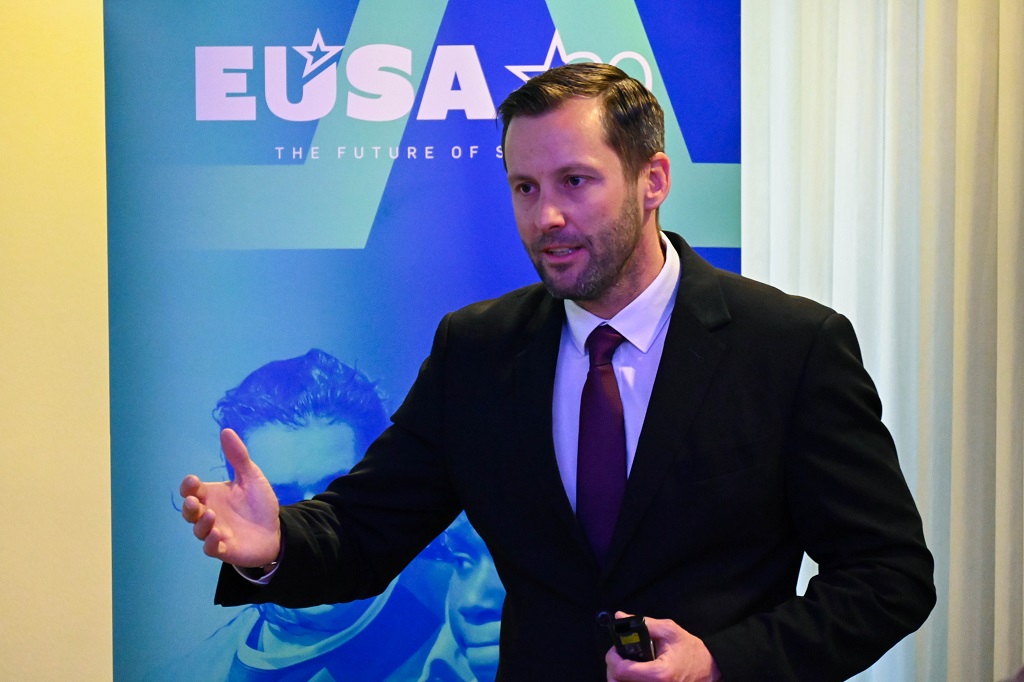
After the presentation of Mr Kozelj, the participants had the chance to split in their designated groups, in order to start working on their organizational or personal developement strategies, as it is one of the main goals of the training.
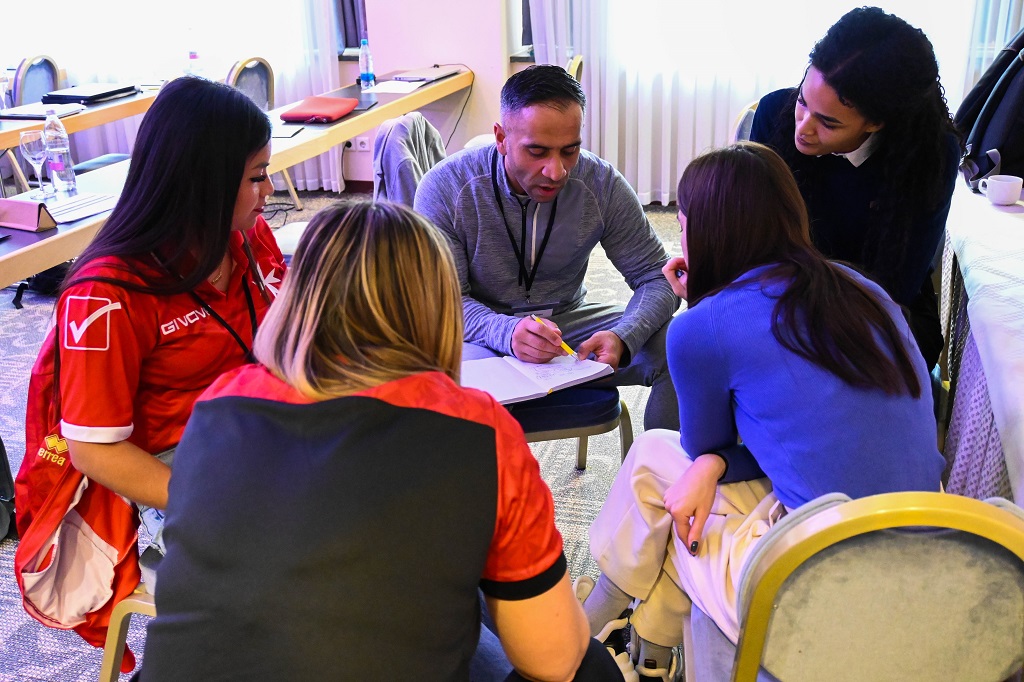
The participants then heard from Mr Fabio Appetiti, a former professional player and now the head of public relations at the AIC (Associazione Italiana Calciatori), about the role of formal stakeholders in sports and how they might be represented in football, as well as explaining his current involvement in empowering female football on a national level.
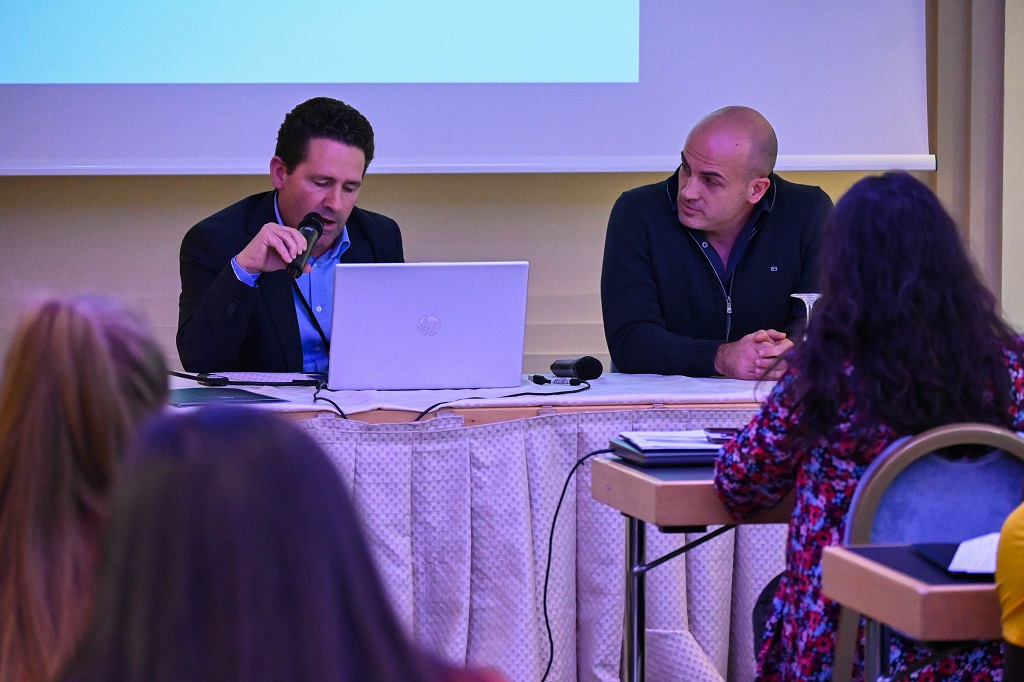
The last speaker of the day was Lise Klaveness, the first female President of the Norwegian Football Association, who spoke about her path to the highest leadership position in sports and how she views the future of football as a contender for the UEFA Exco seat.
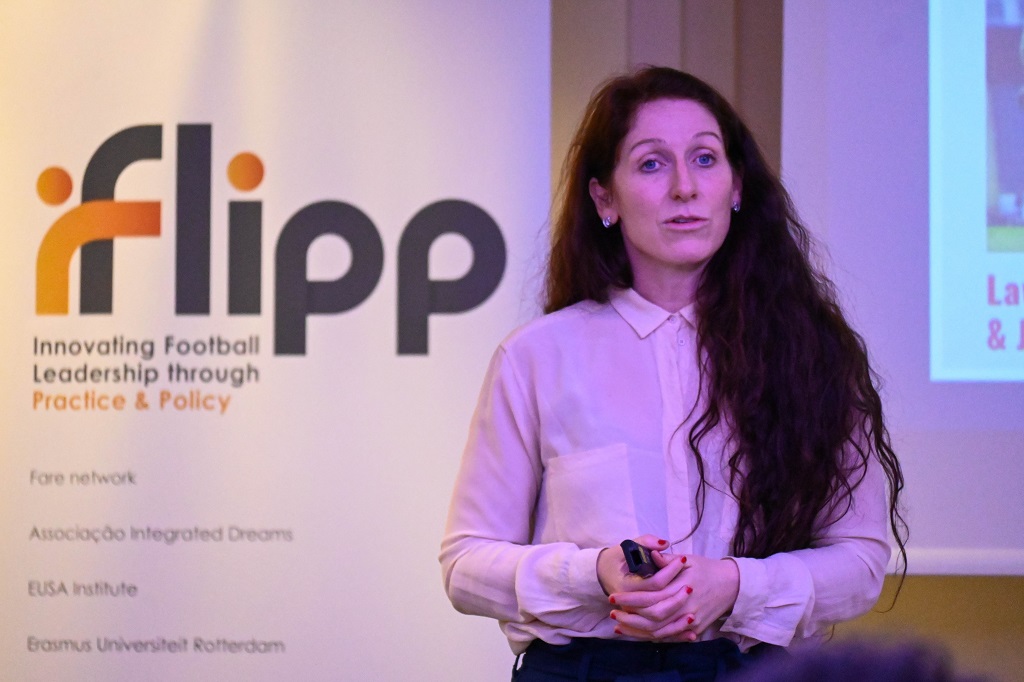
On the third day of the training programme, former professional footballers, Mr Paul Elliot, and Mr Mbo Mpenza spoke on the relevance of racism, the nature of exclusion, different types of racism and their approaches to the challenges they faced, as well as what can be done nowadays to prevent discrimination in football and sport in general.
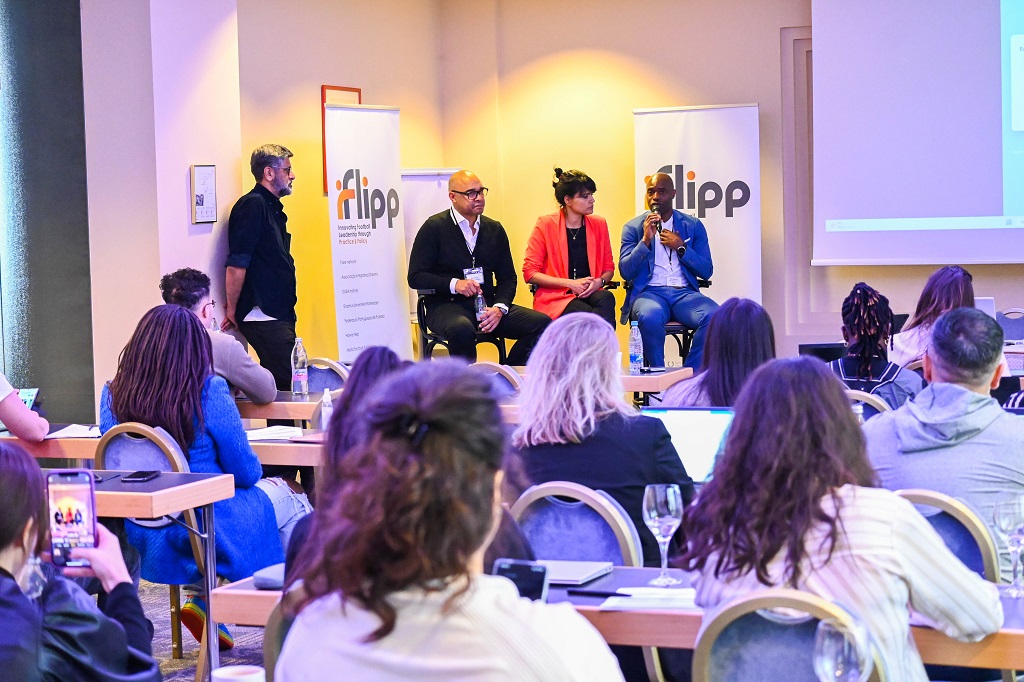
Another pesonal journey of woman leadership was shared by Ms Fnaan Woldegiorgis, Head of Diversity and Inclusion at The Royal Dutch Football Association (KNVB).
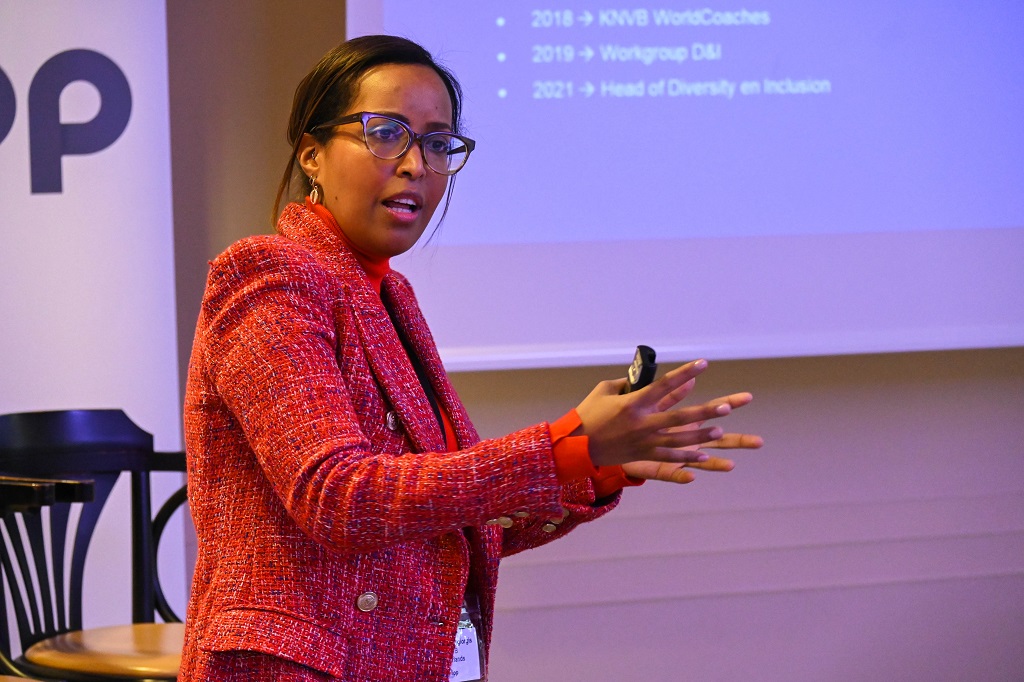
Followed by a talk from Ms Michelle Moore, a multi-award-winning leadership coach, author, speaker, and educator, who discussed ways in which we can all become conscious leaders by accepting responsibility and defining success on our own terms. Ms Moore took the participants through different concepts, followed by open questions as self-reflection and a learning method, in their own leadership journey.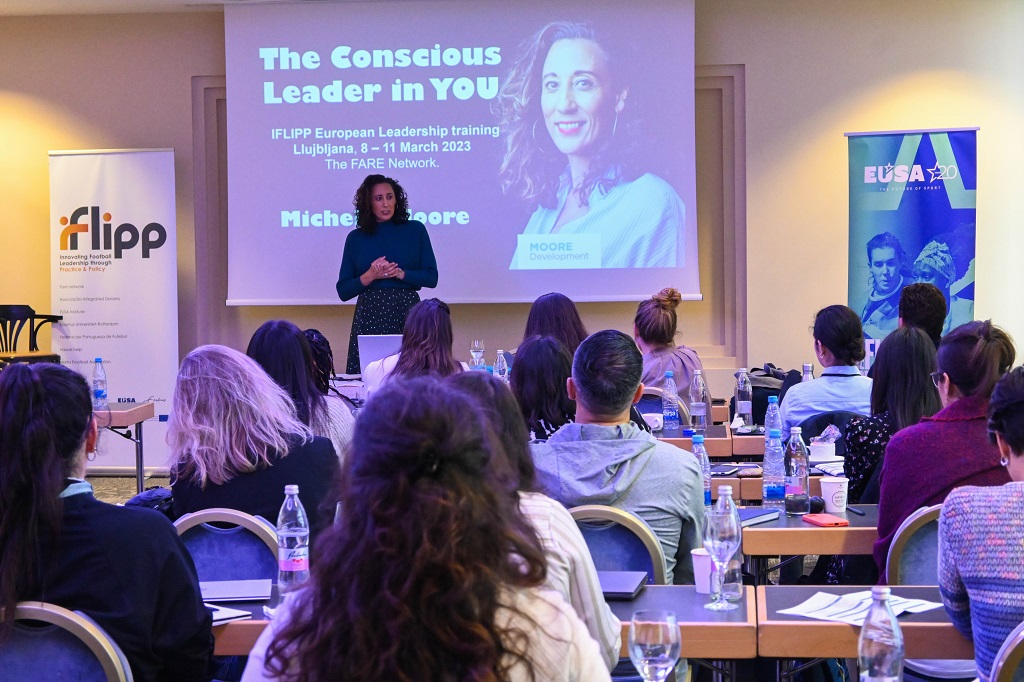
Moreover, the next speaker was Marisa Schlenker, a former football player who is now a trainer and expert, who stressed the necessity of understanding grassroots activism and the sport for social change movement work.
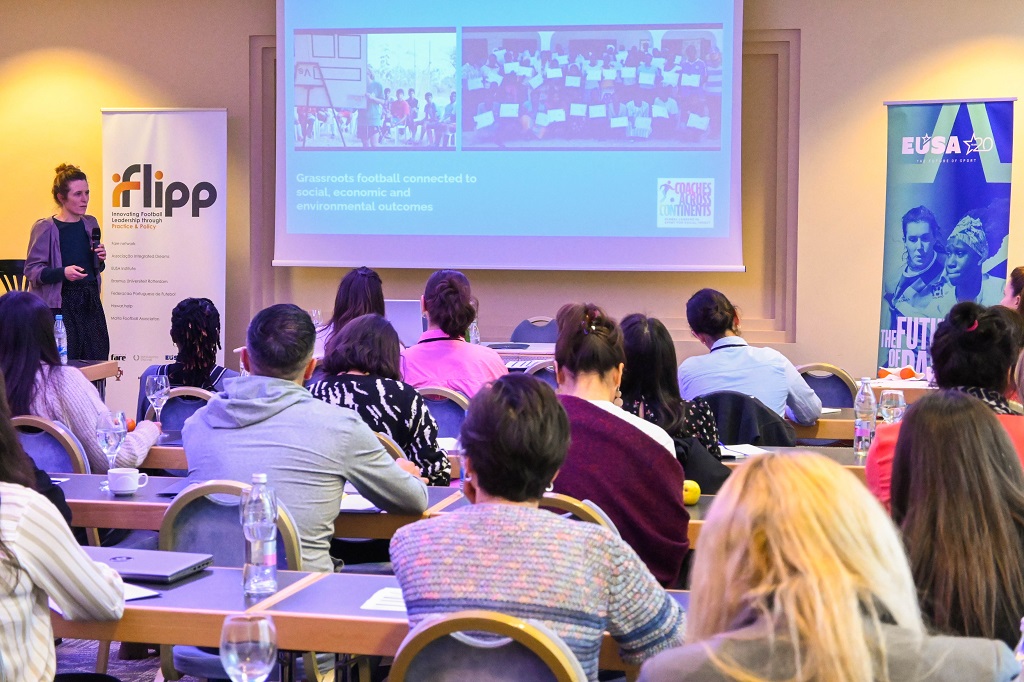
The next speakers highlighted scholarly viewpoints on exclusion, especially in race and religion: Ms Palesa Mashigo, PhD, a researcher at Erasmus University, and Ms Haifa Tlili, REHEA, Brussels University.
Ms Mashigo reviewed the crucial data on representation and the analysis she is working on it.
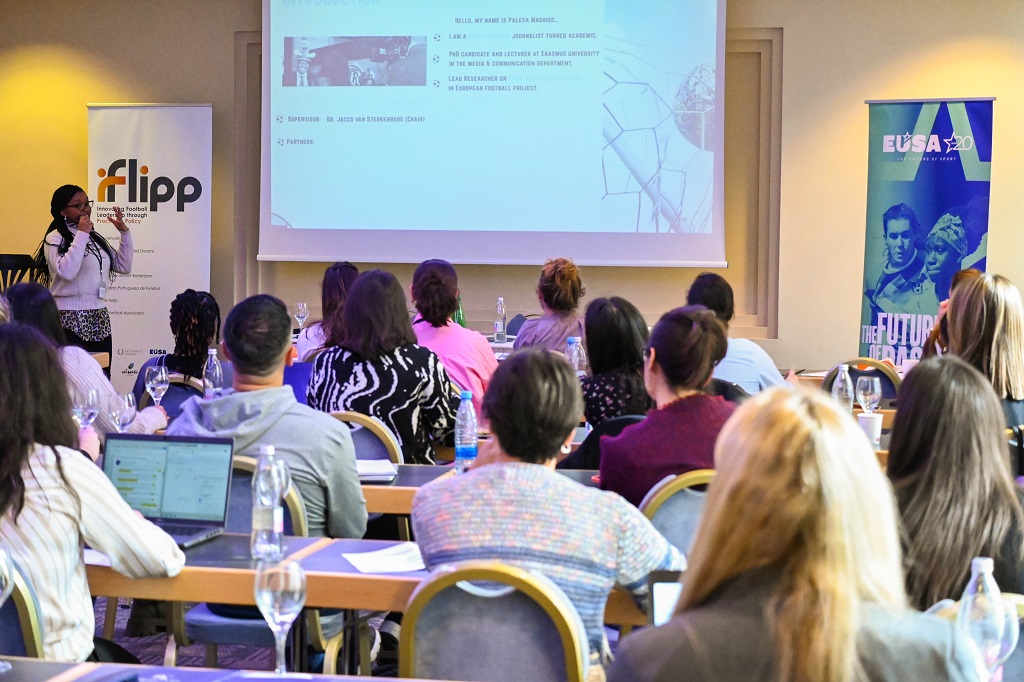
On the other side, Ms Haifa Tlili, explained her work done around the present first stage of her action research - mobilization around the hijab ban in France & Les Hijabeuses campaign.
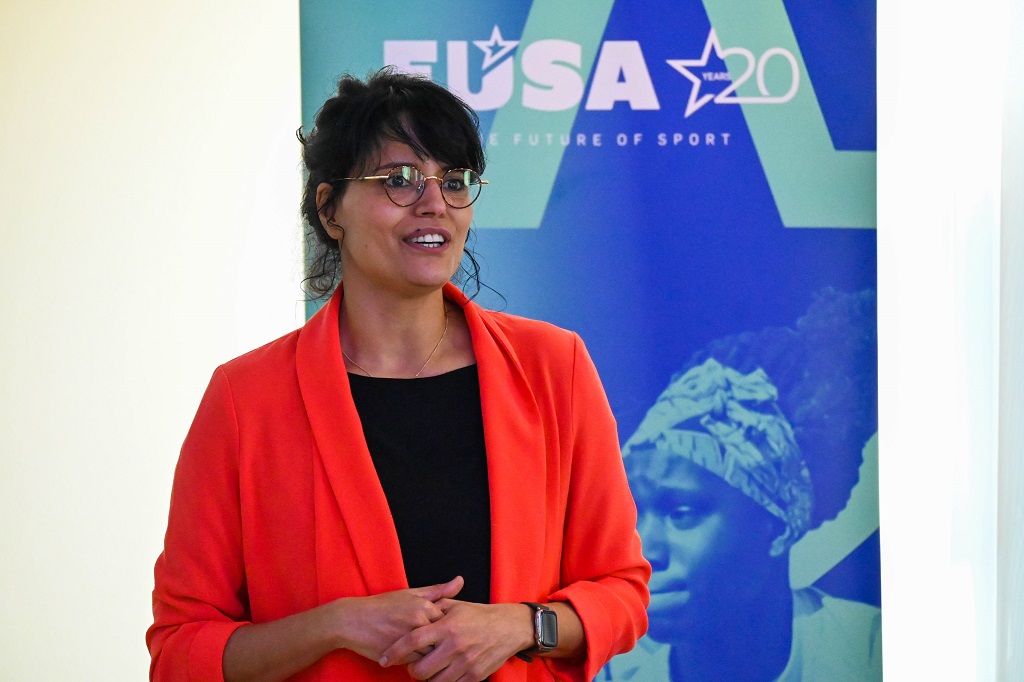
The program continued with insights into the life of an inspirational Olympian and now President of Radomlje WFC, Slovenia, Ms Andreja Leskovsek McQuarrie. Ms McQuarrie took the participants through her career journey and what she learnt, demonstrating examples about leadership and resilience from the snow to the boardroom.
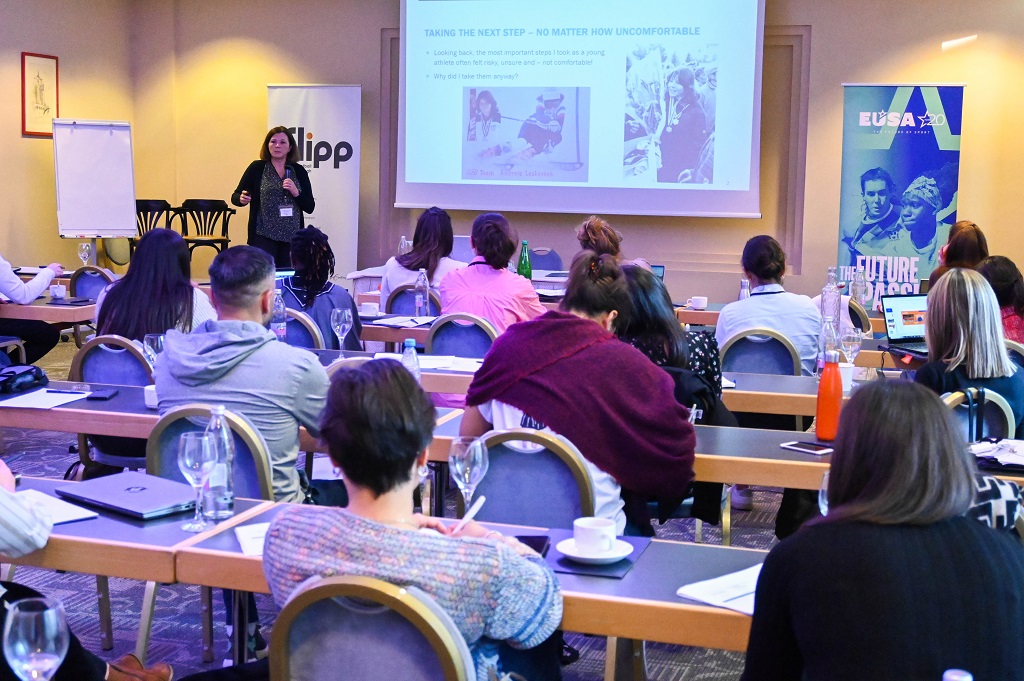
The day then concluded with the personal journey of Ms Arianna Criscione, taking the participants through her professional football career, giving us insights of a dual career path and strong passion about football.
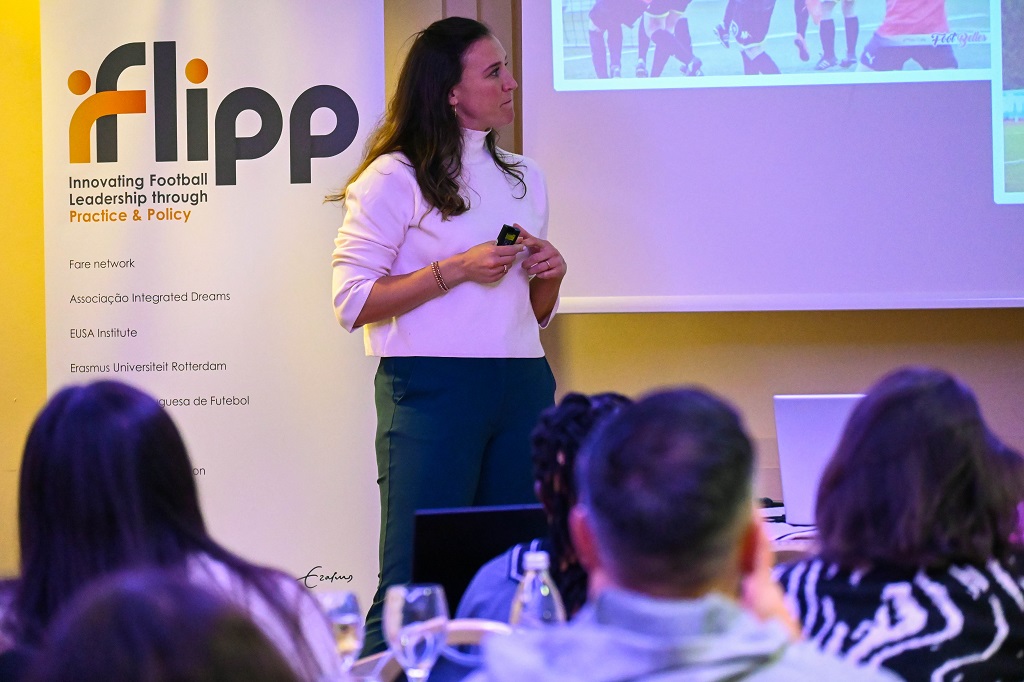
The training concluded on the last day of the project with findings from the group session and some reflection sessions, during which the participants shared their experiences and discussed how they might use the learning and experiences from the previous days and implement them in their own communities.
The Leadership Training Programme is part of the iFlipp three-year project which is co-funded by the Erasmus+ Programme of the European Union, and implemented the FARE Network (NED) in cooperation with Hawar. help (GER), Integrated Dreams (POR), Erasmus University Rotterdam (NED), Portugal Football Association (POR), Malta Football Association (MLT) and the EUSA Institute (SLO), with the support of the Union of European Football Associations (UEFA).
Please see https://coursera.org/share/5c52809456ed8afdb15bf50e4781b972 to enroll to the free online course on the topic of Diversifying and Transforming Football Leadership, developed through the iFlipp project.
